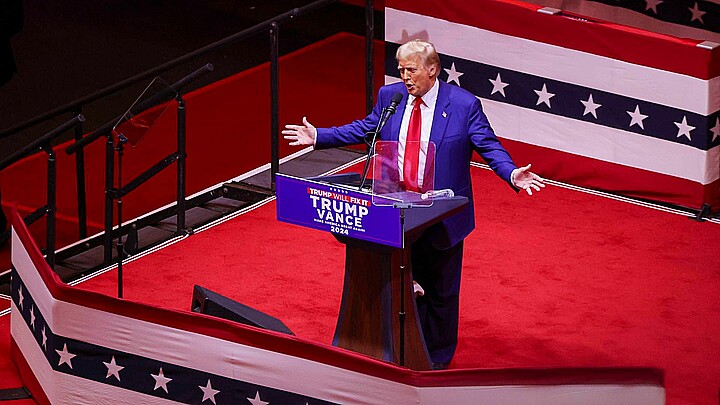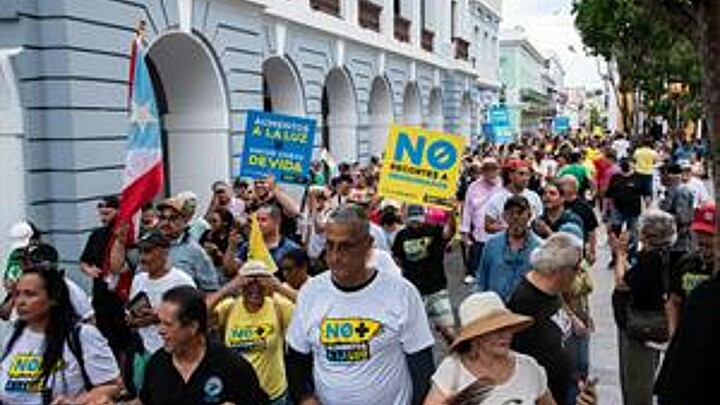Politics
Outrage: Puerto Ricans rally against fiscal control board, electricity price increases
Puerto Rico's power grid has also been fragile since Hurricane Maria in 2017

September 1, 2023 9:15am
Updated: September 1, 2023 9:20am
Puerto Ricans gathered outside San Juan U.S. District Court on Thursday to protest the Fiscal Control Board (JCF), the entity in charge of regulating electricity debt and power authority price increases. The protest, which was organized by labor and community groups, began at 4:00 PM local time in front of the federal court.
"For years, we have insisted that the Board was only brought to the island to pay an illegal and illegitimate debt, and that is our main claim — that the board is a dictatorial and colonialist structure.
"After seven years of its implementation, it is evident that its purpose here is to ensure debt repayment," said Jocelyn Velázquez, spokesperson of "La Jornada Se Acabaron Las Promesas," which organized the protest.
Protestors shouted chants such as "Where are the Puerto Ricans defending what's theirs? Here, here," "Fight yes, wait no," "Fiscal Control Board, colonial dictatorship," "I'm tired of abuse and I took to the streets," the demonstrators demanded that the local government terminate the JCF.

"The call is to reject the dictatorial Board and the entire U.S. government apparatus on the island," Velázquez said.
The Fiscal Oversight Board, responsible for overseeing the restructuring of Puerto Rico's debt, certified a new fiscal plan for the AEE at the end of June and announced its intention to amend the debt adjustment plan of the public corporation, amounting to $10 billion.
The issue is that electricity costs on the island are already higher than on the U.S. mainland, suffocating the population.
Puerto Rico's power grid has also been fragile since Hurricane Maria in 2017, and many complain that the arrival of Luma Energy has not improved the blackout problem and has led to an increase in electricity prices.
Since 1898, Puerto Rico has been a U.S. territory and is considered an "associated state," with its own constitution and a significant degree of autonomy. However, the U.S. reserves areas such as defense, currency, immigration, and customs, among others.
The territorial status of Puerto Rico as an associated state of the U.S. restricts the full political, economic, and social development of the island, and the federal government bears the responsibility of facilitating the choice and transition to a non-territorial political status.
In December, the U.S. House of Representatives approved a status project with 233 votes in favor and 191 against. This project authorizes the holding of a binding referendum on the island in November 2023 to define its political future.
Puerto Rico is also represented in Congress with a non-voting member known as a Resident Commissioner. The position is currently held by Jenniffer González-Colón.








